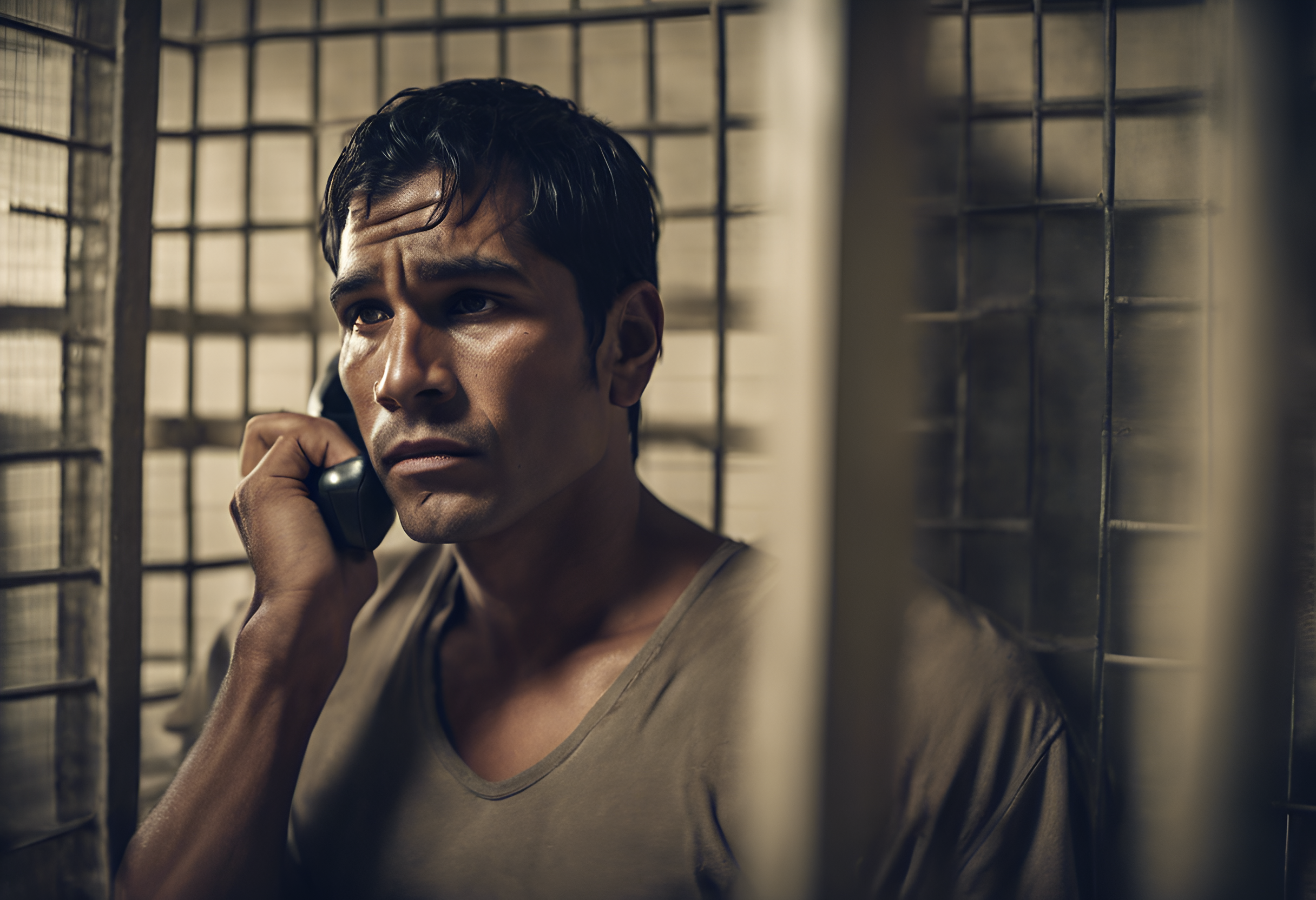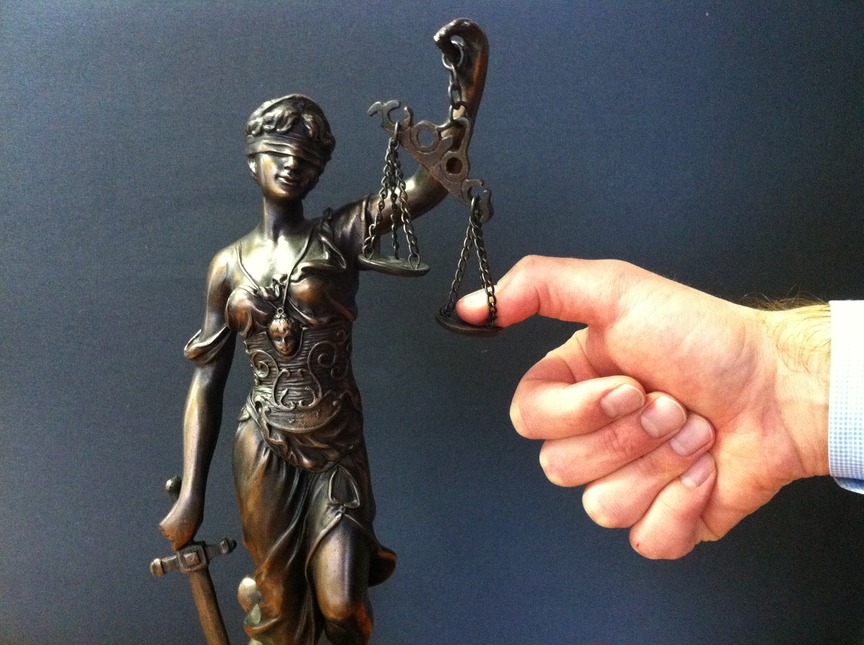This week’s top three summaries: R v Baksza, 2019 ABCA 237, R v AWH, 2019 NSCA 40, and R v Breau, 2019 NSSC 181.
R v Baksza (ABCA)
[June 11/19] Accused's Prior Exculpatory Statements - 2019 ABCA 237 [Jo'Anne Strekaf J.A., Ritu Khullar J.A., and Dawn Pentelechuk J.A.]
AUTHOR’S NOTE: In a short decision, the ABCA has reinforced the proposition that if the Crown leads part of an Accused's statement (or utterances to witnesses) through evidence, the Accused is entitled to lead the rest of it - including all the exculpatory parts. The prohibition on prior consistent statements ceases to apply once part of an utterance/statement is led by the Crown.
Pertinent Facts
The Appellant was convicted sexual interference and then Justice E.C. Wilson denied his summary conviction appeal. (Para 1)
"The Crown's last witness was the complainant's father. The trial judge raised concerns with possibly hearing evidence about what the complainant told her father. Crown counsel assured the trial judge he would not be leading this evidence. However, Crown counsel did ask the complainant's father if he spoke to the appellant after the alleged offence. The complainant's father replied that he phoned the appellant about 36 hours later to confront the appellant regarding the allegations and to tell the appellant that he had to tell the complainant's mother (his ex-wife) about what had happened. He then testified that when the appellant called back, the appellant apologized for the situation the complainant was in." (Para 4)
"In cross-examination, the complainant's father admitted that the appellant denied the assault had occurred and that his apology was directed toward the commotion caused." (Para 5)
"When this evidence was first led by the Crown, defence counsel did not object. Nor did the Crown object when defence counsel elicited further details of the discussion between the complainant's father and the appellant when the appellant testified. No submissions were made to the trial judge on this evidence. The trial judge's reasons make no mention of this exchange between the complainant's father and the appellant." (Para 7)
Prior Exculpatory Statement by the Accused
"Here, the evidence unfolded in a rather hap-hazard way. This evidence was not heard in a voir dire, or through the testimony of the appellant, as contemplated in Edgar. It was the Crown who first elicited evidence from the complainant’s father about the appellant’s apology to him. Without more, this was compelling evidence suggesting the appellant’s guilt. Defence counsel was entitled to cross-examine the complainant’s father and put the apology into proper context. Having opened the door to the conversation between the appellant and the complainant’s father, the appellant was entitled to lead evidence on the entire conversation and the exculpatory parts are substantively admissible in favor of the accused: R v Rojas, 2008 SCC 56 (CanLII) at para 37; R v Selvanayagam, 2011 ONCA 602 (CanLII)." (Para 12)
"The evidence in question was admitted and before the trial judge, but his reasons for judgement are silent on this exculpatory evidence. While it is not necessary for a trial judge to refer to every piece of exculpatory evidence in his reasons, the essence of this trial turned on an assessment of credibility. This evidence went beyond a bald denial and provided details of how the appellant reacted and the explanation provided when first confronted with the allegation. It is impossible to infer what weight, if any, the trial judge put on this evidence or if it factored into the W(D) analysis he was obliged to undertake. The conviction is, therefore, rendered unsafe and a new trial is ordered." (Para 13)
R v AWH (NSCA)
[May 23/19] Ineffective Assistance of Counsel - Counsel Have to Assume Trial Judges will Follow the Law in Advice to Accused About Testifying - 2019 NSCA 40 [Reasons by Bryson J.A., with Beveridge andFichaud JJ.A. Concurring]
AUTHOR’S NOTE: Lawyers have to be careful in how they advise their clients about testifying. Advice that a person should not testify if they have a criminal record for similar offences in a judge alone trial was found to substantiate an ineffective assistance of counsel argument. Because of the prohibition on using a criminal record for propensity reasoning, such advice is incorrect in law. A trial reality question remains for lawyers: can you advise your client the trial judge is unlikely to follow the law and use the information without referring to it in their reasons? Answer: maybe if you have another legally defensible reason to advise the client to not testify. The proposition that lawyers have to advise their clients in a way that assumes trial judges will follow the law seems a bit extreme. After all, if they did, we wouldn't have thousands and thousands of reported appeals.
A significant distinguishing feature of this case was that the trial judge had already heard the unsavoury criminal record of the accused within pre-trial voir dires. One could argue the risk of improper judicial use was already present prior to the decision not to testify, so the trial lawyer's decision could not be defended on that basis here.
Pertinent Facts
"In her February 2016 interview, G.M. claimed that A.W.H. did "stuff bad to me" saying he touched her vagina with his hand and feet. She also said he had touched her while sleeping on her bed, inside and outside her clothes. Some of the evidence was more colourful and plainly not reliable." (Para 12)
"Having admitted the videotaped evidence, the trial judge found A.W.H. guilty, largely on the strength of that evidence. A.W.H. did not testify or lead any evidence, although his position now is that he told his trial counsel that he wanted to testify." (Para 15)
Ineffective Assistance of Counsel Generally
"A.W.H. bears the burden of demonstrating incompetence of his lawyer. He must also show that this undermined trial fairness or reliability of the verdict (R. v. Gogan, 2011 NSCA 105 (CanLII), ¶29; R. v. Fraser, 2011 NSCA 70 (CanLII), ¶53; Ross, ¶34-36). Whether or not to testify is one of those things which must be discussed with the client. The client’s decision must be an informed one: Ross¸¶40; R. v. Moore, 2002 SKCA 30(CanLII), ¶51; R. v. Archer (2005), 2005 CanLII 36444 (ON CA), 202 C.C.C. (3d) 60 (ON CA), ¶139." (Para 32)
"To succeed, A.W.H. must demonstrate that there is a reasonable probability that had he testified, the result could have been different or that he was “actually or constructively deprived of counsel’s assistance” or “prevented from making full answer and defence” (R. v. G.K.N., 2016 NSCA 29(CanLII) at ¶78; Ross, ¶59-60). The former goes to the reliability of the verdict; the latter, to trial fairness." (Para 33)
Ineffective Assistance and Propensity Reasoning
"A.W.H.’s trial counsel testified that her advice to A.W.H. not to take the stand was based on her concern that his prior criminal record—which included convictions for sexual offences against children—would count against him in the Court’s finding of guilt or innocence. On the fresh evidence application she testified:
Justice Beveridge: I see. Now, when you say that you were concerned about credibility because he would be cross-examined on his prior sexual assaults involving children and I explained to him that testifying would likely be more prejudicial than probative. How would being cross-examined on prior sexual assaults involving children be prejudicial to Mr. H. at his trial?
A. I felt it would be a very, it would be, it would be a concern. I mean certainly, you know, it’s not going to be readily relied upon, however it shows a history of offences against children which are similar to the offence he currently, he currently is facing.
Justice Beveridge: How would the trial, you were concerned the trial judge would use that against him in her assessment of guilt or innocence. Is that what you’re saying?
A. I was concerned it would come into it. And now, not to say that it would specifically come into it, but I was concerned. And I raised those concerns with Mr. H., and I was (inaudible) I raised the credibility issue and Mr. H. agreed with me that credibility would be a concern.
Justice Beveridge: So this would count against him on the guilt or innocence scale. Is that correct?
A. Yes." (Para 37)
"It is a basic rule that general disposition evidence cannot be used to infer that the accused committed the offence alleged (R. v. Handy, 2002 SCC 56 (CanLII), ¶31-36; R. v. Corbett, 1988 CanLII 80 (SCC), [1988] 1 S.C.R. 670, pp. 688-689; R. v. Seymour, 2005 NSCA 5 (CanLII), ¶47)." (Para 38)
"A criminal record cannot be used to impeach credibility beyond having the accused confirm the record (R. v. Upton, 2008 NSSC 338 (CanLII), ¶21; Corbett, pp. 696)." (Para 39)
"To the extent that there may have been a hypothetical concern that subconscious moral prejudice may have influenced the Court, that concern should have disappeared in this case for at least two reasons: first, A.W.H. was not being tried by a jury but by a very experienced Provincial Court judge who is presumed to know the law and whose comments in this case leave no doubt that she was aware of that law. Second, having heard an abuse of process application and the voir dire, the trial judge already knew of A.W.H.’s unsavory record. There was no downside to him taking the stand and considerable risk of conviction to him if he remained silent in the face of the videotaped evidence once it was admitted." (Para 40)
"A.W.H.’s proposed new evidence is relevant to decisive issues concerning G.M.’s credibility and reliability and what inferences could reasonably be drawn from her evidence. His evidence is reasonably capable of belief. Finally, if believed, it would reasonably be expected to have affected the result because it provided alternative explanations for ultimately incriminating parts of G.M.’s testimony. The second, third and fourth Palmer criteria are therefore satisfied, and the reliability of the verdict has been undermined." (Para 56)
"Applying the “objective standard through the eyes of a reasonable person” (Fraser, ¶80), A.W.H. has met his burden of showing that his counsel’s representation fell below the standard of reasonableness and resulted in an unfair process both in fact and in appearance. Trial counsel was wrong that A.W.H. should not testify because his past convictions would be relevant to his guilt in this case. His trial counsel described A.W.H.’s criminal record as a “significant factor” in her ultimate recommendation to him not to testify. She thought there would have been “more information” about his past criminal offences should he be cross-examined. Counsel did not identify what additional information she was referring to, but agreed that the Crown could not get into details of the prior convictions." (Para 58)
"While a failure to put A.W.H.’s version of events before the Court did not deprive him of “any reasonable prospect of successfully defending himself” (Ross, ¶1), the failure to do so in this case prevented A.W.H. from making full answer and defence, rendering the trial unfair as well as the verdict unreliable." (Para 64)
"A.W.H. waived his right to testify on the basis of an opinion founded on a mistake of law relating to the permissible uses of A.W.H.’s criminal record. Accordingly, A.W.H.’s waiver of the right to testify was uninformed; the trial was unfair and this unfairness was caused by counsel’s ineffective assistance. I would order a new trial on this basis alone." (Para 65)
R v Breau (NSSC)
[June 4/19] – Police Drug Experts: Possession for the Purpose of Trafficking – 2019 NSSC 181 [Christa M. Brothers J.]
AUTHOR’S NOTE: While there are many factors claimed by police drug experts to substantiate an opinion that a controlled substance was possessed for the purpose of trafficking, the most frequently cited are the packaging of the substance (ie. in numerous small quantities ready for fast street sales) and the quantity possessed (ie. more that a user could use in the short term). In this case, both factors were present but an acquittal was the result nonetheless. Other factors overpowered the above two in the analysis of the trial judge.
Pertinent Facts
"The accused was arrested on February 25, 2017, for being intoxicated in a public place, specifically the parking lot of Dooley's, a bar on Kempt Road. The accused was searched. The accused conceded identity and abandoned a Charter challenge in relation to the search of his person." (Para 2)
"The accused admitted that he was in possession of 28 "dime bags" of cocaine, totalling 23 grams of cocaine in a repressed state. The accused said he possessed the drug (albeit a large quantity) for his own personal use. The accused also had $405.00 in cash. No cell phone, no scales, no scoresheet or other paraphernalia were found on the accused's person."" (Para 3)
The Police Drug Expert
"Cpl Markovic opined that a buyer who purchases in bulk does so to reduce cost and increase quality. Buyers seeking to purchase an ounce expect to receive less than an ounce or 28 grams. The average cost for an ounce of cocaine is approximately $1,800 - $2,000. Corporal Markovic testified that it would not be possible to obtain a reduced price for an ounce, if the cocaine was already cut and pre-packaged into individualized baggies, as the cocaine seized from the accused was. The expert testimony was that the work by the seller to weigh and package would not be followed by a bulk deal or discount provided to the purchaser. It would be a waste of the seller's time and would cut into the profits." (Para 25)
"The usage amounts were testified to. Corporal Markovic testified that the typical amount bought is a gram, which can be subdivided into 8-12 lines of cocaine. If a user is on a binge, the use could possibly be two to three grams." (Para 27)
"Corporal Markovic also testified that it was unusual for a purchaser to buy more product than what one would use, because cocaine is highly addictive, and users typically buy what they need at the time. Corporal Markovic also opined it would be a poor decision to buy an ounce broken into small baggies because the quality would be lower and the quantity would be less." (Para 30)
"In addition, he testified that in his experience a user would not normally buy 28 bags of cocaine. He also opined that a personal user would not carry that much into a bar, unless intending to sell. In his experience, Corporal Markovic had never known a person to purchase this much product without a voucher. Ultimately, he testified that there was an "outside chance" that someone could and would purchase this much cocaine without a voucher." (Para 31)
"Corporal Markovic testified to the availability of cocaine in bars, clubs, sports arenas, bus stations, and malls. He said a typical street level dealer would be expected to have the type and quantity of drug found on the accused." (Para 34)
"Corporal Markovic focused largely on the amount of cocaine, and said he had not known someone to purchase an ounce of cocaine for personal use. But, he did concede that it was neither unreasonable nor impossible. He also conceded that he was aware of other experts who had opined that a quantity of 23-28 grams of cocaine alone was not enough to give an opinion that this is evidence of possession for the purpose of trafficking." (Para 39)
"Corporal Markovic also agreed that the factor that made it most consistent with possession for the purpose of trafficking, or street level dealing, was the packaging - 28 separate baggies." (Para 40)
"Importantly, Corporal Markovic agreed that if he knew the accused had in fact received a settlement and come into money, and this was his first day in Halifax, this could weaken his opinion, as these would be factors he would have to consider. He agreed it could be possible the amount purchased was for the accused's personal use, but maintained that it is atypical to meet a dealer for the first time and purchase that amount. He said it was highly unlikely but could not say this absolutely would not have happened." (Para 45)
"Lastly and importantly, with this new set of circumstances put forward, that is an accused who had come into funds, and was new to an area, Corporal Markovic said he was less certain of his opinion that the accused had possession of cocaine for the purpose of trafficking. He testified that the circumstances were still consistent with possession for the purpose of trafficking, but accepted that it was possible that this was not the case." (Para 46)
The Testimony of the Accused
"The accused testified that he received a settlement from a motor vehicle accident claim. He received a cheque for $7,837.50 on February 14, 2017. He made plans to travel to Nova Scotia to visit friends. He placed the settlement funds in his mother's account, from which she could only withdraw $1000 a day. The accused finally convinced his mother to transfer the remaining settlement funds into his friend, Abdul's account, so that he could get access to all of the remaining funds." (Para 50)
"The accused testified that while he was off work, injured from the motor vehicle accident, he started using alcohol and drugs, including daily use of cocaine." (Para 51)
"The accused acknowledged that this transaction was risky and he could have been robbed, but he asked for only a gram or two at first. This is when he says he saw the quantity in the car and asked the man how much for all of the product. He was told $1600.00. He paid about $1500.00. He testified that he did not care that it was not the best quality. He received 28 baggies of product. He tasted it and could tell it was cocaine. He testified that his friends did not know he purchased cocaine. His friend Abdul who drove them to Halifax, did not know he was consuming cocaine, as the accused was hiding it." (Para 56)
"As to why he would buy so much cocaine at once, the accused testified:
1. He was in Halifax to party;
2. He had the means to purchase cocaine;
3. It was cheaper in bulk; and,
4. He did not know how long he would be staying in Halifax." (Para 62)
The Decision
"I accept that the accused purchased drugs in a large quantity. I accept his evidence that this was because he did not know how long he would be in Halifax, he had cash available, and he was in Halifax to party and take drugs. I accept his evidence, despite the evidence of the Crown's witnesses about the common use habits of addicts, the risk of buying in this manner, the fact that bulk purchases are done for better quality and lower price, and are not packaged in the way the accused's drugs were found, in a number of dime bags. I accept his evidence because of his consistency, his ready admissions, and the fact the Crown's expert candidly acknowledged that his account, while unusual, was not implausible." (Para 81)
"The Crown's expert, Corporal Markovich, agreed that if he had known that the accused had come into money, and that the purchase was made on his first day in Halifax, this could weaken his opinion that the drugs were possessed for the purpose of trafficking. He agreed that it was possible that the amount purchased was for the accused's personal use, but said it was atypical to meet a dealer for the first time and purchase that amount. But he could not say this absolutely would not have happened." (Para 82)
"Lastly and importantly, with this new set of circumstances put forward, the Crown expert said he was less certain it was trafficking. He testified that the circumstances were still consistent with trafficking, but accepted that it was possible that it was not trafficking. This further adds to the credibility of the accused's evidence." (Para 83)
"Consequently, I find the accused not guilty of the charge under s. 5(2) of the CDSA." (Para 88)






